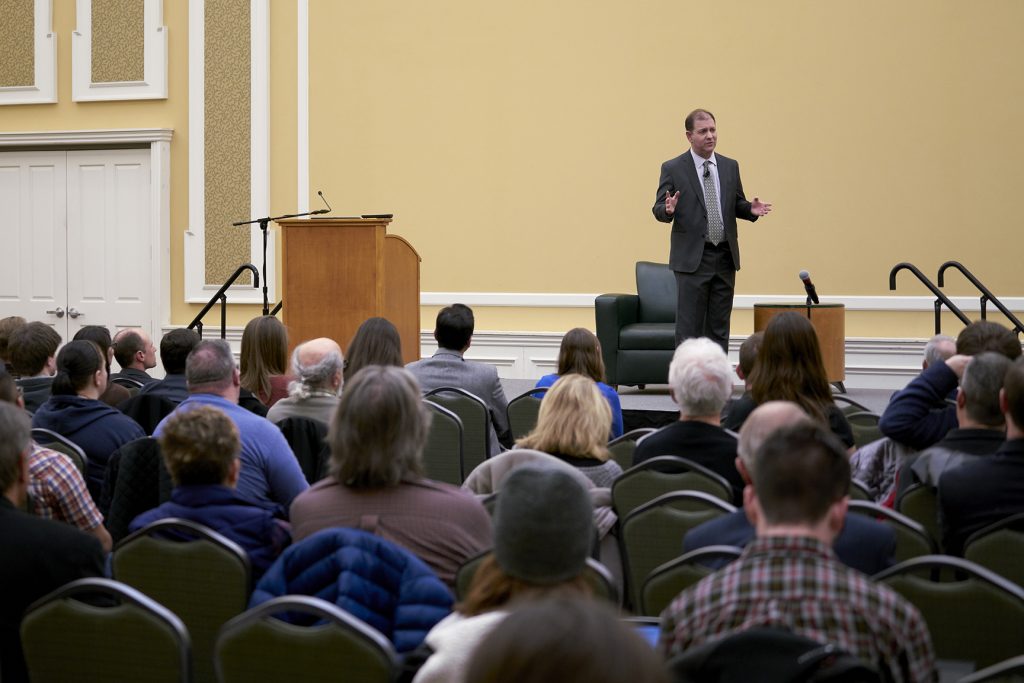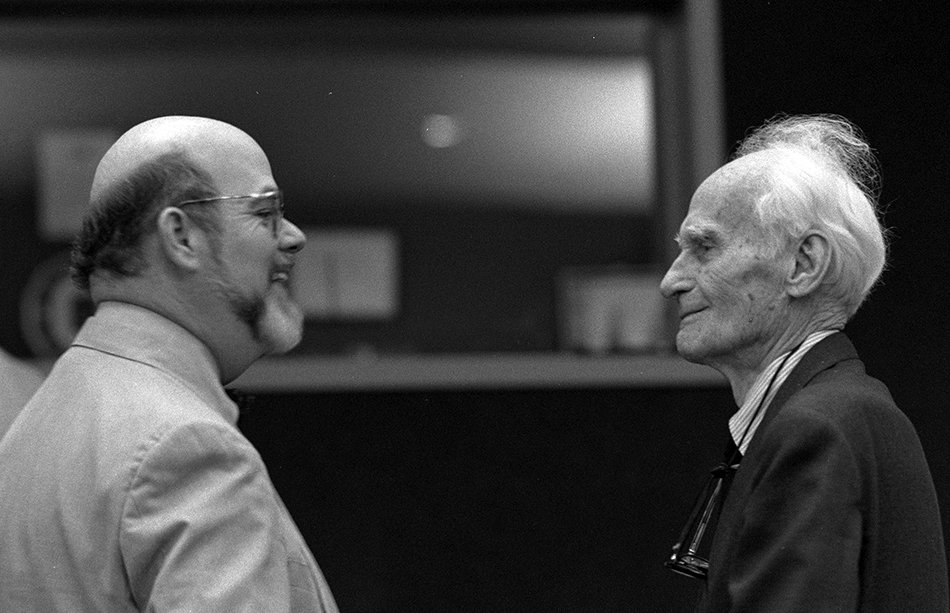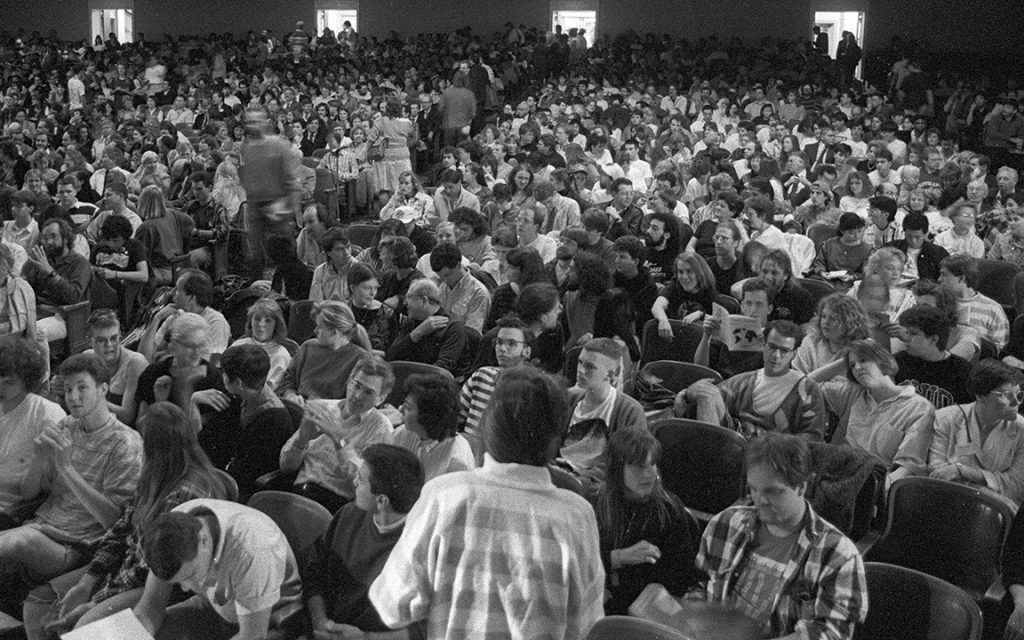Ingo Trauschweizer led the 2018 conference, teaming with OHIO’s E.W. Scripps School of Journalism to host “Populism, the Press, and the Election of 2016” as the conference topic. His hope? That a bipartisan, academic discussion would help to bridge the gap.
“We [did not address] the man or really even the election,” Trauschweizer says. “We [addressed] the divide in the country and the disconnect that exists even with all the means of communication we have.”

Kenneth Stern, former CEO of NPR and author of Republican Like Me: How I left the Liberal Bubble and Learned to Love the Right, delivers the conference’s keynote on the modern divide between Democrat and Republican ideologies. Photo by Evan Leonard, BSVC ’18
Former CEO of NPR and 2018 BPC keynote Kenneth Stern shared his experience “playing Republican for a year” in his keynote address. The life-long Democrat changed his party registration and the media picks he consumed and set off across the country, exposing himself to republican principles. He outlines the experience in his book, Republican Like Me: How I Left the Liberal Bubble and Learned to Love the Right .
“Since the beginning of time the human race has organized ourselves by tribes. Cultures and people that are nearly identical still manage to hate each other,” said Stern. “It’s easy to hate people we think are so different than us; it’s harder once you realize you share common ground.”
Stern argued that patterns of isolation and confirmation bias have negative effects on our ability to dialogue effectively. Trauschweizer agrees.
Making space for opposing ideologies to dialogue is what makes the BPC a leader among scholarly peace conferences. It brings together experts from diverse backgrounds and industries to disagree with each other in a respectful—and productive—way. The effort gives attendees—community members and OHIO students, faculty and staff—examples of the act of civil discourse.
The Baker Peace Studies program also has built significant social capital in areas of contemporary history and political science for 30 years, elevating OHIO in national prominence and matching or surpassing prominent Ivy League programs nationwide.
“We are able to hit far above our weight class,” Trauschweizer says. “We have a solid base with the endowment that other schools don’t have, and so the baseline we are able to build upon sets us up to succeed.”

OHIO Professor Emeritus Sam Crowl (LEFT) and former OHIO President John Baker at the 1992 Baker Peace Conference, then in its fourth year. Photo courtesy of the Mahn Center for Archives & Special Collections
The Baker Peace Conference was established through an endowed gift by former Ohio University President John C. Baker and his wife, Elizabeth. Their vision, in collaboration with support from President Emeritus Charles J. Ping and CHI founder John Gaddis, laid the foundation so the effort can thrive today. Trauschweizer and Professor Steven Miner, along with continued involvement from the Baker family, keep the Baker Peace Studies Program, publications, fellowships for graduate students, and additional student support humming.
“It is terribly difficult to get a new program off the ground, to create something new,” says Miner, chair of the Baker Peace Program. “When someone comes along with the vision, oomph, political muscle, and intellectual capacity to get things done, it is transformative.”
The BPC has examined timely international issues relating to peace—from feminism to violence and religion—throughout its 30-year history. Many topics have re-emerged to take center stage.
“This is exactly what students are here to do—develop critical thinking and communication skills,” says Trauschweizer. “We want to inspire students to take historically informed perspectives on current events out into the world where they can make an impact.”
Feature photo by Meagan Hall, BSVC ’20

The year 2018 marks the OHIO Baker Peace Conference’s 30th year of hosting experts and creating dialogue about global peacebuilding efforts. This archival photo from 1990 speaks to the effort’s spirit and focus over the years. Photo courtesy of the Mahn Center for Archives & Special Collections.




